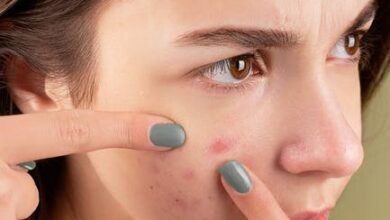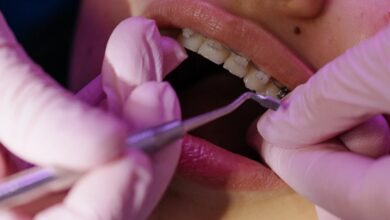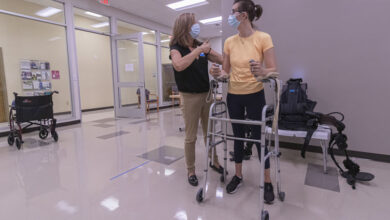How to Protect Your Eyes During Allergy Season

Spring is a season of rejuvenation and renewal, but for people with allergies, it can be a difficult time of year.
Allergies affect millions of people in the world and can cause a variety of symptoms. This may include itchy eyes, watery eyes, redness, and swelling.
These symptoms can be particularly bothersome. Particularly on individuals who wear contact lenses, work on a computer for extended periods, or spend a lot of time outdoors.
If you are one of the millions of people who suffer from allergies, there are steps you can take to protect your eyes during allergy season. Try these tips to keep them healthy and safe during this time of year.
Identify Your Allergens
The first step in protecting your eyes during allergy season is to identify the allergens that trigger your symptoms. Common allergens during spring include pollen, grass, and mold.
Once you know what triggers your allergies, you can take steps to avoid exposure. For example, if pollen is your trigger, try to stay indoors during peak pollen times, usually in the morning and evening. If mold is your trigger, avoid damp or humid areas.
It’s important to avoid other triggers that can exacerbate your allergy symptoms. Smoking, exposure to smoke, and air pollution can also worsen allergy symptoms.
Moreover, it’s also important to avoid wearing contact lenses during allergy season. These can trap allergens against your eyes and worsen symptoms.
Keep Your Home Clean
Keeping your home clean and free of allergens is essential in protecting your eyes during allergy season. Dust, mold, and pet dander can all contribute to allergy symptoms, so be sure to clean your home regularly.
Use a vacuum cleaner with a HEPA filter to remove dust and other allergens from carpets, rugs, and furniture. Wash bedding, curtains, and other fabrics in hot water to kill dust mites and other allergens. Keep your windows closed and use an air purifier with a HEPA filter to improve indoor air quality.
Practice Good Hygiene
Allergy season can be a challenging time for people who suffer from allergies, especially when it comes to protecting their eyes.
Practicing good hygiene can also help protect your eyes during allergy season. Wash your hands frequently to remove allergens that may have accumulated on your skin.
Avoid rubbing your eyes, as this can further irritate them and make symptoms worse. Use a clean, damp cloth to wipe away any allergens that may have settled on your eyelids or eyelashes.
Wear Sunglasses
Wearing sunglasses can provide a barrier between your eyes and allergens in the air. Choose sunglasses with wrap-around frames to protect your eyes from pollen, dust, and other allergens.
Look for sunglasses with polarized lenses, which can help reduce glare and improve visibility in bright sunlight. You can also wear a hat with a brim to provide additional protection.
Use Eye Drops
Eye drops can help relieve the symptoms of allergies and protect your eyes from further irritation. Look for eye drops that are specifically formulated for allergy relief, and avoid eye drops that contain vasoconstrictors, which can make symptoms worse over time.
Use eye drops as directed, and avoid using them for extended periods, as this can lead to rebound symptoms.
Use Cold Compress
Using a cold compress is another effective way to relieve the symptoms of allergies and protect your eyes. Applying a cold compress can help reduce inflammation and soothe irritated eyes.
You can use a cold compress by placing a clean, damp washcloth in the refrigerator for a few minutes. You can also try this cold compress for eyes to also keep your eyes feeling and looking fresh
Apply the cold compress to your closed eyes for a few minutes at a time, several times a day, as needed.
It’s important to note that while a cold compress can help relieve symptoms, it’s not a substitute for other treatments such as eye drops or oral medications.
Take Oral Medications
Oral medications, such as antihistamines and decongestants, can also help relieve the symptoms of allergies. Talk to your doctor or pharmacist about which medications may be right for you.
Be sure to read the label carefully and follow the instructions for use. Some medications may cause drowsiness or other side effects, so use caution when driving or operating heavy machinery.
Additionally, it’s worth noting that not all eye symptoms during allergy season are caused by allergies. Other conditions such as dry eye, blepharitis, and conjunctivitis can cause similar symptoms.
If your symptoms persist or worsen despite taking steps to reduce your exposure to allergens, seek medical attention. Your doctor can help you determine the underlying cause of your symptoms and provide appropriate allergy treatment.
Consider Immunotherapy
If your allergies are severe or do not respond to other allergy treatments, you may want to consider immunotherapy. Immunotherapy involves exposing your body to small amounts of allergens over time, which can help desensitize your immune system and reduce allergy symptoms. Immunotherapy can be administered as injections or as sublingual tablets and may take several months or even years to be effective.
It’s also essential to note that allergies can affect anyone, regardless of age or health status. It’s not uncommon for adults to develop allergies later in life, and children can also suffer from seasonal allergies.
If you suspect that you or your child may have allergies, talk to your doctor or an allergist. They can help you identify your triggers, provide treatment options, and offer advice on how to manage your symptoms.
Eye Care During This Allergy Season
Overall, protecting your eyes during allergy season requires a comprehensive approach. This includes identifying your triggers, practicing good hygiene, and keeping your home clean. You can also use a cold compress, eye drops, oral medications, and consider immunotherapy.
By taking these steps, you can reduce your exposure to allergens and protect your eyes from discomfort and irritation. Remember to seek medical attention if your symptoms persist or worsen despite these measures.
With the right care and treatment, you can enjoy the beauty of springtime without suffering from allergies.
If you think this article is helpful, check out our other blogs!




